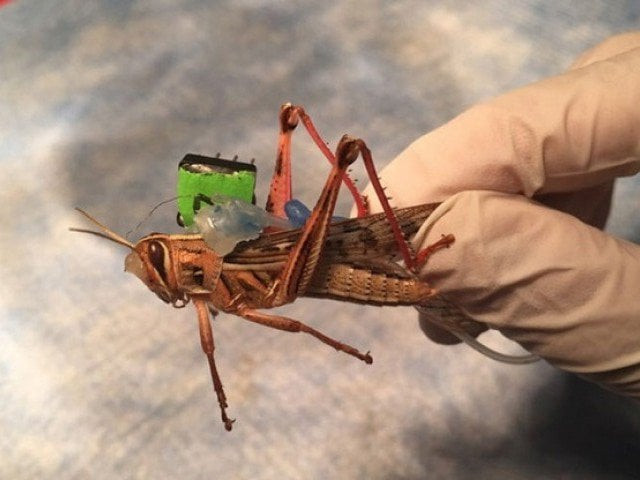Why are we losing the locust war?
Now is the time to put together all our efforts to fight the locust war, build capacity of agriculture departments

PHOTO: EXPRESS/FILE
Why are we losing the war against locust invasion? Primarily, there have been four types of government failures that could have been avoided.
The first is the preparedness failure. The locust threat is not new to Pakistan and, in fact, the very objective of the creation of the Department of Plant Protection (DPP) in 1950 was locust survey and control. The unit was well-equipped with robust capacity to manage the locust attacks. But over time, the department’s priorities changed. With lucrative mandate of regulating import of pesticides given to the department, the function of locust survey and control took the backseat. The DPP which, at one point, had a sizeable fleet of 20+ aircraft, now barely has three rundown planes, which had recently been made functional. One of the planes crashed earlier this year, leading to the death of a pilot. The department now operates with only a single pilot, and therefore can only fly one plane at a time.
Secondly, there has been a coordination failure, where the federal-provincial misalignment and the blame game of words prevented a well-coordinated response. Balochistan, where 60% of locust breeding happens, is where the problem needed to be tackled. But with very little stake in the agriculture sector and having modest resources, it is naive to expect that Balochistan could have managed this unprecedented wave of locust attack. This is where the federal government should have come to action to protect the interest of the federation and not shirk off its responsibility.
Third is the implementation failure, even after the forthcoming threat was well understood, at least since June 2019. Whether it was timely allocation of sufficient resources or import of necessary equipment, recruitment of pilots or developing a robust action plan, coordination with provinces or collaboration with other countries, government’s response was either nonexistent or at best too slow. In fact, Punjab is the only province that anticipated the threat well and steered the agenda by highlighting it in the provincial cabinet last year, sent scores of letters since last June to nudge the federal government, pioneered domestic manufacturing of specialised equipment through army workshops and the private sector, and suggested the involvement of National Disaster Management Authority (NDMA) and the military. If it was not for the six helicopters lent by army aviation and an aircraft arranged by NDMA from Turkey, the aerial spray through a single run-down plane of DPP would have been nothing but a joke.
Lastly, but most importantly, there has been an innovation failure. Not realising the severely deficient public sector institutions, our policymakers still think primarily through a public-sector lens. Instead of mobilising farmers, seeking support from rural support programmes or other farmer organisations, or allowing the private sector to use drones for crop spray, they seem to overestimate the prowess of state institutions.
The Covid-19 pandemic has created an uncertainty around agricultural supply chains around the world. Pakistan’s GDP is already expected to shrink significantly for the first time in 70 years, with extremely serious consequences. But ironically, more than the pandemic, it is the threat of desert locusts that can be catastrophic for Pakistan’s agriculture sector. Now is the time to put together all our efforts to fight the locust war, build capacity of provincial agriculture departments to fight this menace and seek help from international development partners. But once the dust settles, we should demand nothing less than a judicial inquiry into what went wrong and who should be held accountable for playing havoc with the backbone of the country’s economy.
Published in The Express Tribune, June 9th, 2020.
Like Opinion & Editorial on Facebook, follow @ETOpEd on Twitter to receive all updates on all our daily pieces.















COMMENTS
Comments are moderated and generally will be posted if they are on-topic and not abusive.
For more information, please see our Comments FAQ